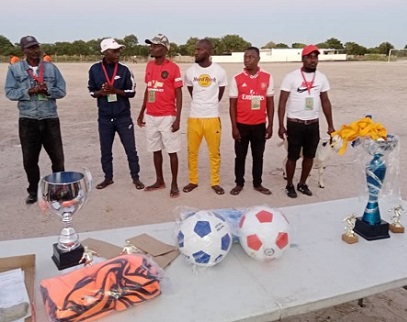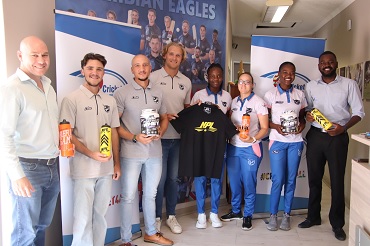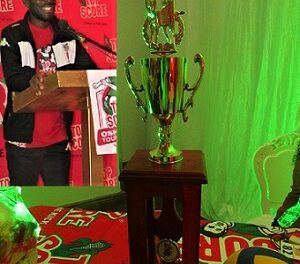In a step towards the end of the Namibian football deadlock, the NPL released a statement outlining the way forward towards the professionalization of Namibian football.
Also known as ‘soccer’, football is the most popular sport code in Namibia. But it is also the most controversially mismanaged sport in the country.
The country has not seen league soccer for three years as a result of not only Covid-19 but mostly due to the squabbling in the Namibian soccer house.
Now in a statement released by the Namibia Premier League (NPL) on 5 August, the league will be run by a body registered as a not-for-gain company. Without indicating when the league will start, upon resumption the league will be managed in a similar manner as the German Bundesliga.
The NPL, registered as a company with BIPA on 29 July 2021, will have a task to “promote, administer, control, govern and regulate all professional football in Namibia according to the prescripts of FIFA, CAF, NPL and NSC within the constraints of the Namibian Constitution, Laws and its Operational Manual and any other business which may seem directly or indirectly conducive to the business.”
The league’s legal status will consist of two tiers, known as the Premier Division and the National First Division.
Internationally the NPL will affiliate to the World League Forum (WLF) which is a body established for professional leagues around the world.
Locally the NPL will be independent of the Namibia Football Association (NFA) but will forge a contractual relationship similar to that in the Bundesliga with the German FA, in the best interest of Namibian football.
According to the new guidelines, the NPL envisages to conclude a collective bargaining agreement with the players representatives to ensure compliance with labour laws, FIFA Statutes and enhance living standards. There will also be an obligation for all Premier clubs to have a youth development structure.
As a result there will be an increase in the pool of Namibian players who will then strengthen the national team.
The league will also provide other benefits, such as job security as all players, coaches and administrators will be regulated through legal contracts. All actors of the league will be registered with Social Security or an insurance to create the necessary safety buffer.
While not specifying how the hot spot will be handled (financial accountability and transparency), the NPL promises financial stability for member clubs “as the league will ensure that adequate sponsorship is sourced for both ‘tiers’”.
Meanwhile the member clubs will be obligated to adhere to administration and financial standards in line with the WLF and other international instruments.
In addition the clubs will have a share of television broadcasting rights.
The NPL will operate as a ´corporation’ or company owned by the member clubs, and each club is a shareholder, with one vote each on issues such as rule changes and contracts.
The NPL’s full accountability will fall under an Executive Committee of seven (7) persons, four (4) elected by the Premier Division, two (2) by the National First Division and one (1) by the Players, while the daily operations will be run by a complement of fulltime staff.
It will now be a wait-and-see how the NFA will react to this development since the NFA has put in place plans already to set up its own premier league.
In the photo: Soccer enthusiasts at Ondangwa Rural constituency.







